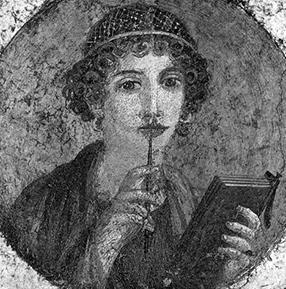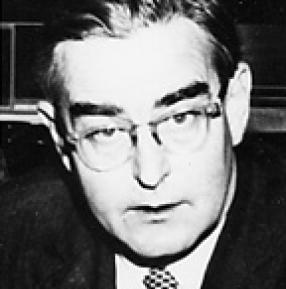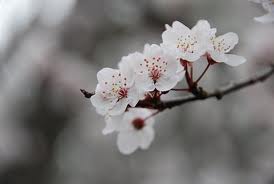 Angelus Silesius (c. 1624 – 9 July 1677) was a German mystic of the Counter-Reformation. He was born and baptised Johannes Scheffler in 1624 in the province of Silesia. In 1653, he converted to Catholicism from Lutheranism. He took holy orders under the Franciscans and was ordained a priest in 1661. Ten years later he retired to a Jesuit house where he remained for the rest of his life, trying to reconvert the people of Silesia.
Angelus Silesius (c. 1624 – 9 July 1677) was a German mystic of the Counter-Reformation. He was born and baptised Johannes Scheffler in 1624 in the province of Silesia. In 1653, he converted to Catholicism from Lutheranism. He took holy orders under the Franciscans and was ordained a priest in 1661. Ten years later he retired to a Jesuit house where he remained for the rest of his life, trying to reconvert the people of Silesia.
Today he is known primarily for his religious poetry, and in particular for two poetical works both published in 1657: Heilige Seelenlust (literally, The Soul’s Holy Desires), a collection of more than 200 religious hymn texts that have been used by Catholics and Protestants; and Der Cherubinischer Wandersmann (The Cherubinic Pilgrim), a collection of 1,676 short poems, mostly ‘Alexandrines’, which are simple rhymed couplets.. His poetry explores themes of mysticism, quietism, and pantheism within an orthodox Catholic context. These short poems may lose much in translation (I do not read German) and many may seem quite naïve, but the depth of feeling that comes through the translations selected below gives them the resonance of haiku and other short, mystical poetry.
The poems of Angelus Silesius
I first came across his poems in a book by Raymond Oliver, To be Plain. Further reading showed that the poetry of Angelus Silesius consists largely of tweet-sized epigrams in the form of alexandrine couplets, a style that dominated German poetry and mystical literature during the Baroque era. Perhaps the best, and the best known of these poems, is “Without Why”:
 Die Ros ist ohn warum; sie blühet weil sie blühet,
Die Ros ist ohn warum; sie blühet weil sie blühet,
Sie acht nicht ihrer selbst, fragt nicht, ob man sie siehet.
I have included some translations of this and other “rose” poems below, indicated by the rose symbol beside them. The same poem was often referenced in the work of the philosopher, Martin Heidegger, who explored mysticism in many of his works where he defines a theory of truth as phenomenal and defying any rational explanation.
The Argentinian writer and poet Jorge Luis Borges (1899–1986) once asserted that the essence of poetry can be encapsulated in a single line from Silesius, “I will end with a great line by the poet who, in the seventeenth century, took the strangely real and poetic name of Angelus Silesius. It is the summary of all I have said tonight — except that I have said it by means of reasoning and simulated reasoning. I will say it first in Spanish and then in German: La rosa es sin porqué; florece porque florece and Die Rose ist ohne warum; sie blühet weil sie blühet.” The influence of Silesius is often seen in the work of Borges, especially in his poetry.
Translating Angelus Silesius
There are many translations of the epigrams available today, some with titles appended and some without. J. E. Crawford Flitch, writing in 1932, dealt with the difficulties he encountered in translating the poems into English, “For the fact that so many of the alexandrine couplets of the German poet appear in the following pages in the guise of quatrains of varying patterns, I have no other excuse to offer than that of my inability to preserve the original form without doing violence to the sense.” Another translator, Julia Bilger, writing in 1944, describes the attraction of these poems, “Many years ago in lovely Lindau on the Bodensee, I happened upon a thin volume of Angelus Silesius’ couplets which startled, amused and greatly interested me. Although it was in 1657 the world had first received them it seemed to me that they had lost little of their significance in 300 years. Their pithy comments upon human frailty, their wholesome attempt to direct a way toward peace of mind, their often half concealed humor, have modern application.”
Artist and philosopher Frederick Franck discovered the work of Angelus Silesius in a Copenhagen bookstore. He was drawn to these short poems from one who lived in “a century of upheavals, wars, and revolutions, a time of religious conflict, almost as troubled as ours.” After some 25 years of Zen study, he recalled an earlier reading of the poems, “It was as if the ancient Zen Masters, who had become my companions and friends, were bending over me, whispering their own — sometimes quite ironic — commentaries in my ear.” So he set his translations beside sayings of Zen teachers. The Irish haiku poet, Gabriel Rosenstock, has brought a different ethos to bear on the work of Angelus Silesius, “To be quoted liberally in the same book alongside such culturally disparate characters as Ikkyu and Crowfoot would appear to him as some monstrous abomination more than likely. And yet, the true haikuist (whether a religious believer or not) can relate to the couplets of the so-called cherubinical wanderer in ways that he may never have suspected.”
Brief Poems by Angelus Silesius
Translations by Paul Carus
Eternity is time
And time eternity,
Except when we ourselves.
Would make them different be.
***
Two eyes our souls possess:
While one is turned on time,
The other seeth things
Eternal and sublime.
***
WITHOUT WHY
 The rose is without why.
The rose is without why.
It blows because it blows.
It thinks not of itself,
And no display it shows.
***
When quitting time, I am
Myself eternity.
I shall be one with God,
God one with me shall be.
***
The nearest way to God
Leads through love’s open door;
The path of knowledge is
Too slow for evermore.
Translations by J. E. Crawford Flitch
Thou Must Blossom Now
O blossom, blossom, frozen soul!
May is abroad before thy door.
If thou dost blossom not to-day
Then art thou dead for evermore.
***
God is Not Grasped
God is an utter Nothingness,
Beyond the touch of Time and Place:
The more thou graspest after Him,
The more he fleeth thy embrace.
***
The Cross on Golgotha
The Cross on Golgotha
Thou lookest to in vain,
Unless within thine heart
It be set up again.
***
Without Why
 The Rose because she is Rose
The Rose because she is Rose
Doth blossom, never asketh Why;
She eyeth not herself, nor cares
If she is seen of other eye.
***
He Who Is Truly Rich
Much having is not being rich.
The Wealthy Man is he
Who views the loss of all he hath
With equanimity.
***
Thou must Go to the Source
Water is pure and clean when at the well-head quaffed:
Drink’st thou not at the Spring, there’s danger in the draught.
***
Conclusion
Friend, it is now enough. Wouldst thou read more, go hence,
Become thyself the Writing and thyself the Sense.
Translations by Julia Bilger
Perpetual Motion
You seek unceasingly Life’s neverending motion;
I seek perpetual peace. Which is the wiser notion?
***
Man’s Three Foes
Man hath three enemies:—himself, the world, the devil.
Of these the first is far the most unyielding evil.
***
New and Old Love
A new love bubbles up and sparkles, like new wine;
Older and clearer love is always still and fine.
***
God Died on the Cross Before
God died not on the Cross an only time or first;
His murderer hath been long as Abel’s murderer curst.
The rose beheld today by thine external eye
Hath burgeoned thus in God through all eternity.
***
Even the Smallest Worm
No worm is so concealed within the deeper soil
But God ordains it food as a reward of toil.
***
Now Blossom
Awake, oh frozen Christian, for May is at thy door.
Unless thou bloomest now, thou diest evermore.
***
Time is Eternity
Time’s like eternity, eternity like time
Provided you yourself can only make them rhyme.
***
Thy heart receives thy God and all that with him goes
When it expands toward him as does an opening rose.
***
Finis
Friend, I have said enough. If thou wouldst read still more,
Then go thou and thyself become the script and lore.
Translations by Raymond Oliver
Nothing Suits the Faultfinder
The nightingale won’t scorn the cuckoo’s song;
But you, unless I ape you, call me wrong.
***
Now You Must Bloom
Bloom, frozen Christian,May is at the gate!
Bloom, here and now, or forever be too late.
***
God Sees the Essentials
How you do good, not what, God sees; the fruit
Does not concern him, just the seeds and root.
***
Old and New Love
New love, like a new wine, will effervesce;
With age and clarity, it bubbles less.
***
Immanence
Those who dwell in him, God cannot condemn;
For he would put himself in hell with them.
Translations by Maria Shrady
One Cannot Grasp God
God is the purest naught, untouched by time and space;
The more you reach for Him, the more He will escape.
***
The rose doth have no why; it blossoms without reason
Forgetful of itself, oblivious to our vision.
***
Through Humanity to God
If you would like to catch dew of divinity,
Unwaveringly adhere to its humanity.
***
One Perceives God in Oneself
What my God’s form may be, yourself you should perceive,
Who views himself in God gazes at God indeed.
Translations by Stephen Mitchell
God is a pure no-thing,
concealed in now and here:
the less you reach for him,
the more he will appear.
***
God, whose love and joy
Are present everywhere,
Can’t come to visit you
Unless you aren’t there.
***
God is my final end;
Does he from me evolve,
Then he grows out of me,
While I in Him dissolve.
Translations by Frederick Franck
No sweeter tone
from any lute could spring
than when
this heart and that of God
resound
as with one string.
***
Prayer is neither word nor gesture
chant nor sound.
It is to be in still communication
with our Ground.
***
 The rose that
The rose that
with my mortal eye I see
flowers in God
through all eternity.
***
A ruby
is not lovelier
than a rock,
an angel
not more glorious
than a frog.
***
He has not lived in vain
who learns to be unruffled
by loss, by gain,
by joy, by pain.
Translations by Gabriel Rosenstock
Friend, whatever you are, you must not stand still:
One must from one light into the other spill.
***
God, whose love and joy are present everywhere,
Can’t come to visit you unless you aren’t there.
***
I do not believe in death: I die by the hour, each day
And I have found a better life this way.
***
So many droplets in the sea, in bread so many grains;
So too of our multiplicity, nothing but God remains.
***
 The rose blooms and knows not why,
The rose blooms and knows not why,
Unencumbered by itself, oblivious to the eye.
***
Unless within you it already lies
Believe me, you cannot come to Paradise.
Translations by D. S. Martin
More Known Less Understood
The more you know God, the more you will confess
That what He truly is, you know now less and less.
***
Through You God Loses Nothing
Choose, Man, which of the two you want,
Your self-destruction or your peace.
Through you God suffers no loss,
Nor does He find increase.
***
God Didn’t Die For The First Time On The Cross
The cross wasn’t the first time He let Himself be slain,
For, see, he lies dead there at the feet of Cain.
Andrew Harvey
When God lay hidden in a young virgin’s womb
Then a miracle occurred; the point contained the circle.
***
Virginity is noble, but a mother you must also be
Or be a field stripped bare of all fertility.
Translations by Michael R. Burch
There is more to being rich
than merely having;
the wealthiest man can lose
everything not worth saving.
***
The rose merely blossoms
and never asks why:
heedless of her beauty,
careless of every eye.
***
New love, like a sparkling wine, soon fizzes.
Mature love, calm and serene, abides.
***
Man has three enemies:
himself, the world, and the devil.
Of these the first is, by far,
the most irresistible evil.
***
 The rose lack reasons
The rose lack reasons
and merely sways with the seasons;
she has no ego
but whoever put on such a show?
***
Water is pure and clean
when taken at the well-head:
but drink too far from the Source
and you may well end up dead.
LINKS
The Poetry Chaikhana page on Angelus Silesius
Selections from The Cherubinic Wanderer by Angelus Silesius translated with an introduction by J. E. Crawford Flitch.
Alexandrines translated from the “Cherubinischer Wandersmann” of Angelus Silesius by Julia Bilger.















